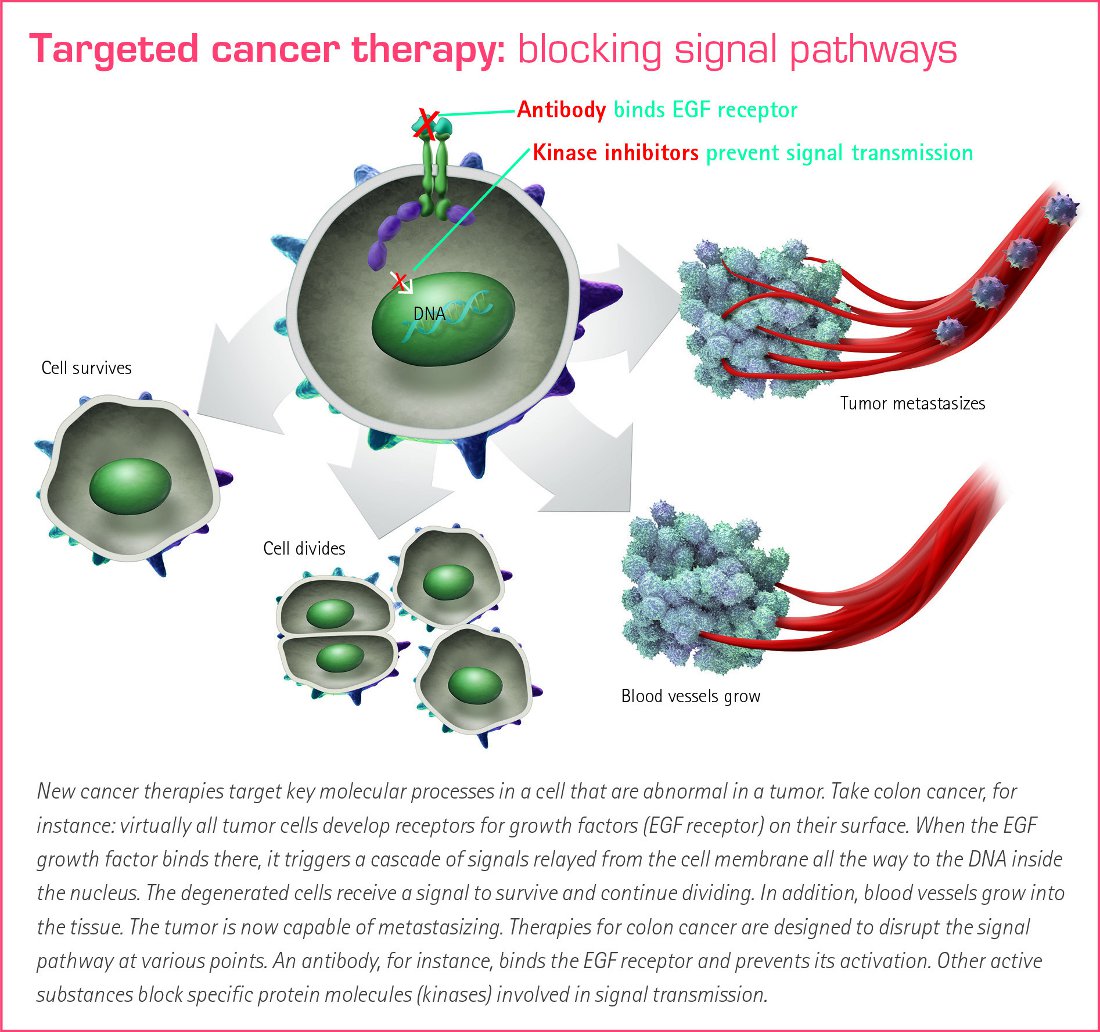Survival Signaling

- Health at Bayer
-
Pharmaceuticals
- Treatment Areas
- Innovation & Technologies
- Cell and Gene Therapy
-
Sustainability
- Patient Access Charter
- Leadership Perspective
- Strengthening Healthcare Access
- Moving Non-Communicable Diseases Care Forward
- Ensuring a Sustainable Product Supply
- Delivering Better Cancer Care
-
Empowering Women, Globally
- Boosting Family Planning Usage through Digital Channels
- Capacity building: Addressing Root Causes through Partnerships
- Impact at Scale: The Challenge Initiative
- Promoting Awareness: World Contraception Day (WCD) & the Your Life Campaign
- Providing Accessible and Affordable Contraceptives
- Enabling Family Planning in Humanitarian Settings
- Fighting Neglected Tropical Diseases
- Transparency
- News & Stories
- Personal Health
- Report a Side Effect
- Medical Counterfeits
The 'survival signaling' research field is concerned with blocking the survival signals of the cancer cells.
Usually, a damaged cell initiates its own death as soon as it ceases to receive survival signals, i.e. when certain proteins stop docking onto its surface, or once it no longer has any contact with neighboring cells. Programmed cell death (apoptosis) is a natural process that is vital for the organism. However, cancer cells are able to bypass this mechanism by themselves activating the signaling pathways through which the survival signals are sent to the tumor cells. In this way the degenerated cells prevent their own death and continue to proliferate unchecked.
Two signaling pathways that are activated particularly frequently in cancer cells are the Ras/Raf/MEK/ERK and PI3K/PTEN/Akt/mTOR pathways. If these are affected by dysregulation, cancer cells can grow and divide uncontrollably, further aided by the fact that they become resistant to traditional chemotherapy. The researchers at Bayer are paying special attention to these and other signaling pathways. The aim is to find inhibitors that are capable of blocking specifically the tumor cells' signaling pathways, thus committing the cells to apoptosis.

Oncology
With the goal of improving the lives of people affected by cancer, oncology research at Bayer is working on developing new cancer treatments and making them available to patients who need them all over the world. Our pipeline explores specific treatment approaches for various tumors, including such common types of cancer as prostate, lung and breast cancer, as well as rarer forms like kidney, liver and thyroid cancer.
A key starting point in oncology research at Bayer is identifying suitable molecular targets at different stages of tumor evolution with the aim of killing tumor cells and stopping tumor growth. Novel therapeutic strategies can then be derived from such targets. For example, kinase inhibitors are a class of active ingredients that has emerged from this research. Bayer's target-discovery efforts focus particularly on the cell cycle, survival signaling, immunotherapy, antibody-drug conjugates, tumor metabolism and chromatin modulation.










